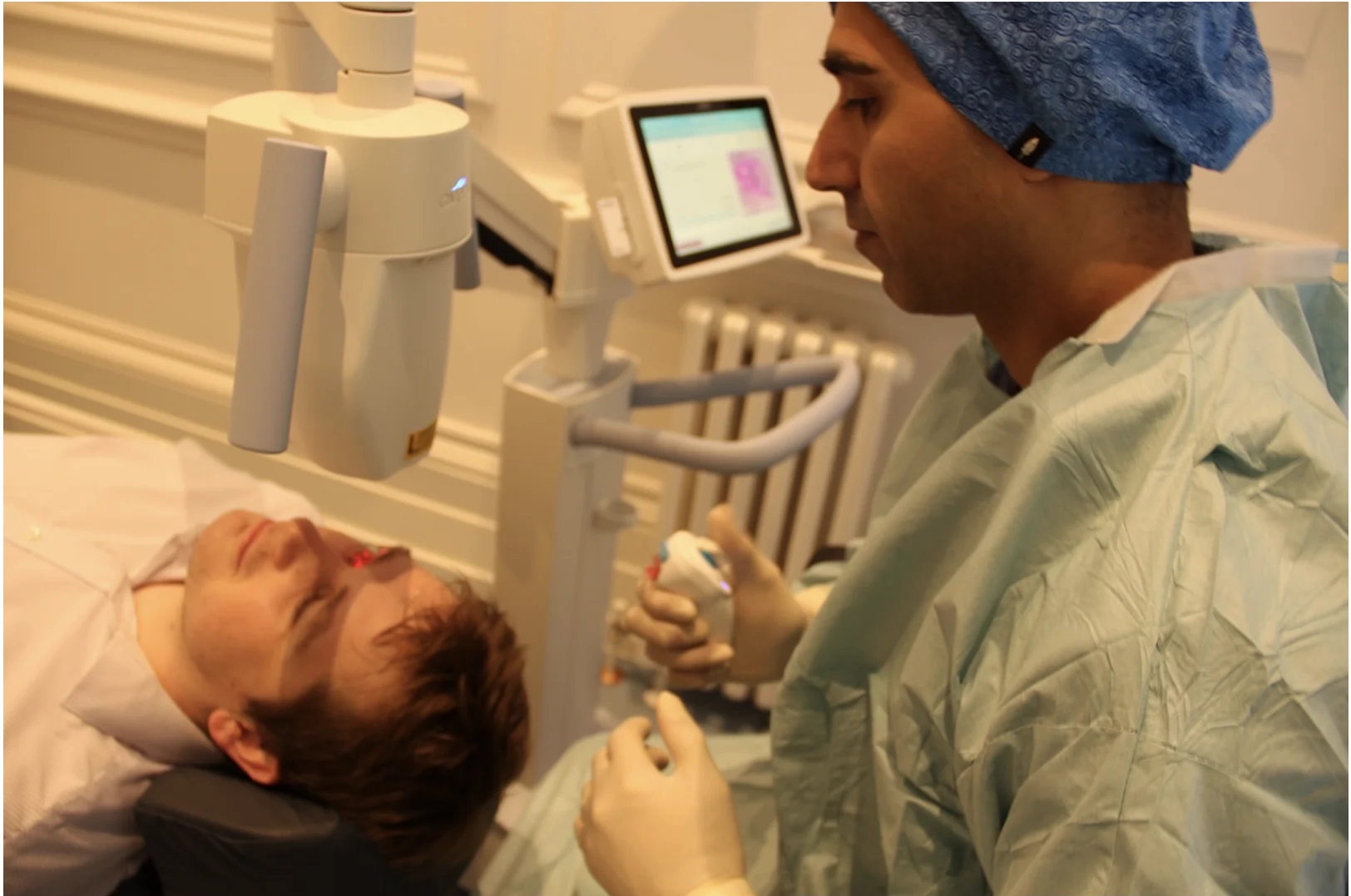Preparing for the procedure
Before undergoing the Corneal Collagen Cross Linking (CXL) procedure, you should stop wearing contact lenses for a specified period of time before the procedure. Your ophthalmologist will provide you with specific instructions based on your situation.
Since your vision may be temporarily affected after the procedure, arrange for someone to drive you home. Inform your ophthalmologist about any prescription or over-the-counter medications you are taking. They will advise you whether you need to continue or temporarily stop any medications before the procedure.
During the procedure
The corneal surgeon at Clinica London performs the CXL procedure using local anaesthetic eye drops. CXL treatment involves removing the thin surface layer of the cornea called the epithelium.
This procedure stimulates the development of new corneal collagen cross-links. These cross-links cause the collagen fibrils to become shorter and thicker, resulting in a stiffer and stronger cornea.
At Clinica London, Cross-Linking (CXL) is performed as an outpatient procedure by the Consultant Corneal Eye Surgeon with the assistance of a senior nurse. We offer an accelerated version of CXL known as ‘epithelium off’ or ‘rapid’ CXL. This procedure reduces the treatment time by delivering the same amount of UV light energy in eight minutes compared to the standard CXL, which takes 30 minutes.
Does the Treatment Hurt?
The CXL procedure is generally well-tolerated and considered to be relatively painless. However, it is normal to experience some discomfort in the first 24 hours following the procedure. This discomfort can range from mild to moderate and may include sensations of stinging, burning, or a foreign body sensation in the eye.
To help manage any discomfort, we provide our patients with a combination of antibiotic eye drops, anti-inflammatory drops, and lubricating eye drops. The discomfort after the procedure is temporary and should gradually subside within a few days.








